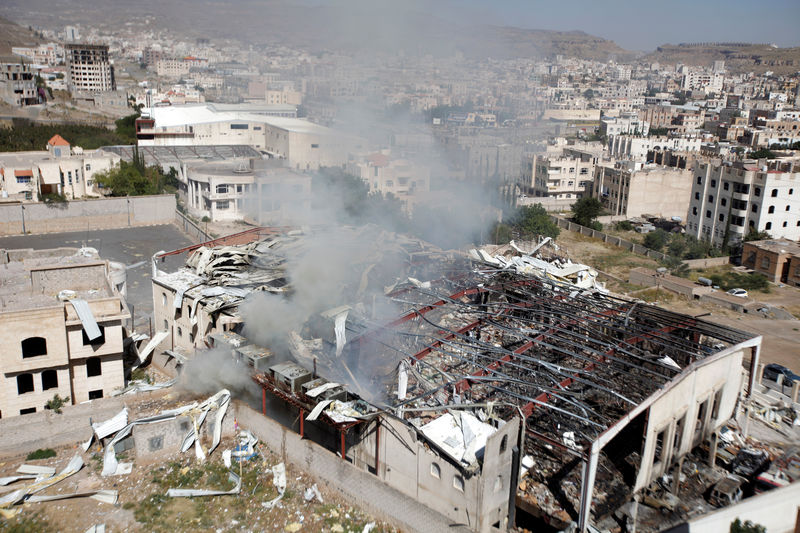SANAA (Reuters) - Yemen's Houthi-run administration welcomed a 72-hour ceasefire starting on Wednesday intended to allow aid to reach areas cut off by months of fighting and in dire humanitarian need.
In its first statement on the truce, a governing council composed of the Iranian-allied Houthi group and powerful local allies demanded a Saudi-backed Arab coalition end military attacks and lift curbs on air, sea and land transport.
A ceasefire between warring factions will begin at 2359 local time (2059 GMT) on Wednesday, the United Nations said on Monday, raising hopes of an end to a war that has killed thousands of civilians and left people starving.
The council announced its "positive engagement" with the ceasefire plan, and added Yemen needed an immediate, lasting and comprehensive truce without conditions, including what it called an end to the blockade on the Yemeni people.
Aid agencies may try during the ceasefire to reach families trapped in towns and villages where fighting and coalition-imposed travel curbs have left people short of food and in need of vital medical supplies.
"Hopefully this nationwide cessation will provide humanitarian agencies and organizations the opportunity to respond in areas that have been cut off or are hard to reach in all of Yemen," Jamie McGoldrick, the U.N.'s Yemen Humanitarian Coordinator, told Reuters.
McGoldrick said he hoped the cessation of hostilities would be extended and would herald a resumption of peace talks that collapsed in August.
In Washington, U.S. Secretary of State John Kerry said that the truce, announced by U.N. Yemen special envoy Ismail Ould Cheikh Ahmed, required all parties to halt military activities and help facilitate the delivery of humanitarian assistance.
"We reiterate the Special Envoy’s request to allow 'free and unhindered access for humanitarian supplies," Kerry said.
Saudi Arabia and several Gulf Arab allies have carried out air strikes and deployed troops in Yemen in support of the exiled Yemeni government of President Abd-Rabbu Mansour Hadi, which was toppled by the Houthis in 2015.
The Houthis and their allies, forces loyal to former President Ali Abdullah Saleh, hold most of Yemen's northern half, while forces loyal to the government share control of the rest of the country with local tribes.

The 19-month conflict has exacerbated Yemen's already urgent humanitarian needs by increasing levels of malnutrition and recruitment of child soldiers and damaging schools and infrastructure.